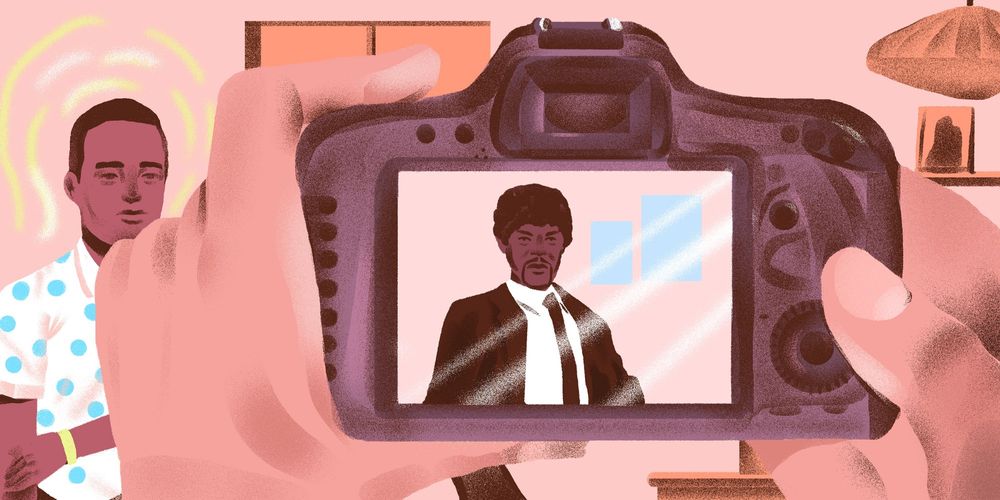
In 2010, I was a sophomore studying abroad in Florence, drunk on all the city had to offer: a language people spoke more with their hands than their mouths, small but filling plates of pasta, gray-haired women unshuttering their windows to let in the morning sun, hills that seemed to grow overnight and shrink during the day, the kinetic juxtaposition of white-marbled 13th-century cathedrals and dark-skinned immigrants washing into Europe’s “boot” like the waves they nearly died on to get there.
A friend and I traversed the narrow cobblestone streets, wine in our hands and excitement in our hearts. The previous week, we’d met two French art students at Bebop, a club where my friend had weekly gigs. The two art students — one extremely shy, the other unabashedly not — had taken us to a funhouse of sorts, where the top floor was made of beds, with crayons and markers available for body illustrations and a hedonistic atmosphere hanging in the air like a cloud. It was with this in mind that we accepted their invitation to another party, this one hosted by a young Italian photographer.
His apartment was surprisingly large. A handful of people were conversing in French and Italian and sipping red wine out of white plastic cups, seated on couches, embodying the bohemian aesthetic with each movement. The French art student I liked ignored me. I peered into my cup of red wine. My friend, inherently awkward, fidgeted in his chair.
This is a paranoia and anxiety that I find following me around like a shadow.
The Italian photographer rushed out of the room and returned with a large camera, taking photos, asking people to pose, and spinning around the room like a hurricane. He laughed as friends crowded together; smiled as people froze on cue, unlit cigarettes hanging from their mouths; rims of stained plastic cups kissing their lips. He then told me to stand up, and said, in accented English, “Now, hold a gun out, like the nigger from Pulp Fiction.”
I stood there but was no longer myself; I was Jules Winnfield, a hit man who, after “a moment of clarity,” decided to “walk the earth.” Jules, played by Samuel L. Jackson, is 6'2", dark-skinned, and sports Jheri curls, chops, and a horseshoe mustache. I am 5'7", light-skinned, and had no facial hair nor head hair long enough back then to be called an afro, much less Jheri curls. But in that moment, I was “the nigger from Pulp Fiction.” My effortless transformation didn’t stop the flow of French and Italian in the room or turn any heads except for my friend’s, who now sat with his mouth agape.
Why was I “the nigger from Pulp Fiction?” I still wonder now, eight years later, revisiting a memory I carelessly thought forgotten. But painful memories are never forgotten, only buried. If I hadn’t been the only Black man at the party, would another have had his identity transmogrified for pleasure? It would be easy to say that the young photographer didn’t mean anything by it, that it was “just a joke,” but I believe it’s deeper than that. Somewhere inside him, he did see me as “the nigger from Pulp Fiction”: a stand-in, substitute, and embodiment of one of the many entertainment-fed, media-fueled, and shrink-wrapped brands of Blackness he was used to.
Why didn’t he ask my friend, who is Jewish, to strike a pose like Tevye the Dairyman singing “If I Were a Rich Man” in Fiddler on the Roof? Did he even know my friend was Jewish, or was he just any American studying abroad? Is there any world in which he’d ask my friend to “hold a gun like the white cyborg from The Terminator?” “Wield a sword like the white Scot from Braveheart?” Of course not, because my friend was assumed to be of no relation to those characters; his individuality was never in question.
I stood there but was no longer myself; I was Jules Winnfield from Pulp Fiction.
When he told me to “hold a gun out, like the nigger from Pulp Fiction,” the burden of asserting my individuality — of not playing the part — became entirely mine. Because those 10 words, like a spell, instantly rendered me an other. Something that for four sweet, unthinkable, and overly generous Mediterranean months I had forgotten I was. Learning the language, being treated well by most Italians, and having a large Senegalese population in the city already serving as resident “others” created a fragile castle of comfort, easily flattened by 10 words.
“Hold a gun out, like the nigger from Pulp Fiction.”
I left Florence in May 2010 and returned to the United States. And while the memory of that night buried itself so deeply inside me that I’d thought it gone, I now realize it’s always been there, like a dormant disease, laying in wait for my most vulnerable moments, when I forget that the most dangerous thing a person of color can do is forget they’re a person of color — especially in unfamiliar places. This is a paranoia and anxiety I try to ignore, but I often still find it following me around like a shadow, no matter if I’m walking on a cobblestone street in Europe or laying on white-sand beach in Southeast Asia. And although this shadow may prevent me from living in the moment, it is also my protector, ceaselessly whispering, “Never forget, never forget, never forget.”
Read more stories from Traveling While Black: On Being Black in First Class by Jamilah Lemieux, Letting My Guard Down as a Solo Black Traveler by Randy Winston, Where Blackness Is Its Own Nation by Kaitlyn Greenidge, and Traveling While Black in Colombia by Nneka M. Okona
